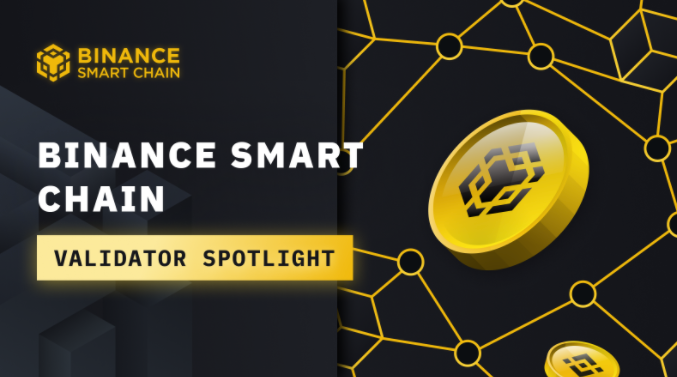Chains
BNB Beacon Chain
BNB ecosystem’s staking & governance layer
Staking
Earn rewards by securing the network
Build
Explore
Accelerate
Connect
Careers🔥
Explore Opportunities on BNB Chain
BSC Validator Spotlight: MathWallet

What does it take to become a validator candidate? What was their motivation to become a validator? And what’s their prediction of the BSC future? Keep reading to get unique insights from MathWallet, our next interviewed validator candidate.
Are you new to Binance Smart Chain or want to learn more about the role of validators and delegators on BSC? Read our article, A Journey to Decentralization: Validators & Delegators, for more on becoming a validator or delegator.
What is your core business, and what is your business strategy connected to being a validator?
MathWallet is a multi-platform (mobile/desktop/hardware) universal crypto wallet that enables token storage of 60+ chains including BTC, ETH, Polkadot, Filecoin, Solana, BinanceChain, etc, supports cross-chain token exchange, multi-chain dApp store, and operates nodes for POS chain.
Because we already have a mature node operation and monitoring system, a small portion of the node revenue will be used to cover the costs of servers and engineers' funding. We will continue to contribute to the BSC ecosystem, including providing data synchronized nodes and developing BSC data tools.
How did you discover Binance Smart Chain?
In 2019 MathWallet began to support the Binance Chain, and MathWallet was also one of the early ecological supporters of the Binance Smart Chain. As a multi-chain wallet, we have been paying attention to the ecological development of the BSC.
What’s your motivation for becoming a Binance Smart Chain Validator?
We decided to become a BSC validator candidate for three key reasons:
- As a multi-chain wallet with over one million users, a seamless and smooth user experience is one of our overarching goals, and serving as a BSC validator is one way to progress towards that objective.
- We’re experienced in providing stable and professional node operation and maintenance, having previously participated in the operation of several POS blockchain nodes, including Cosmos, Irisnet, Kusama, etc.
- To further participate in the BSC ecosystem and support its growth.
What benefits do you see in being a validator?
Our goal is, by being a validator node, is to provide stable services through staking, and provide wallet users with more secure benefits. Being a validator node helps us to better understand the operation and maintenance of BSC nodes and prepare for the subsequent creation of BSC data synchronized nodes for wallet users.
How did you set up your validator infrastructure?
On the node architecture, we created the top-down structure and set up the firewall. We have established a 24-hour node monitoring service, which can send report messages immediately, ensuring that the operations and maintenance engineers are able to deal with any issues quickly so as to ensure the stability of the node and network.
How do you engage with your community and attract more delegations?
- The MathWallet community has a significant number of loyal users who are knowledgeable of the various wallet products, including the BSC node community users who have expressed their strong support.
- We provide users with a BNB Node Staking Daily Report so that they can see the income and node status in a timely manner.
- MathWallet has accumulated experience in previous operating nodes and built solid node operation & maintenance technology. We’re an established name with high community recognition.
What did you learn from your experience with BSC? And what recommendations would you give new validators?
BSC is very suitable for everyday users because of its higher TPS and lower handling fee, which has attracted many new novice users in DeFi in need of better guidance and tutorials. This is something we have been working on and look forward to sharing more in the future. We look forward to more members joining us and becoming part of the MathWallet community.
What do you envision for the BSC Validator community in the future?
We look forward to collaborating with other BSC Validators to find ways to improve the experience as BSC is exposed to wider userbases. Within our subset of the BSC community, we have a small goal: To stake 10 million BNB on BSC with the MathWallet community.